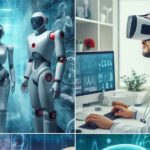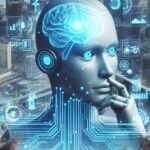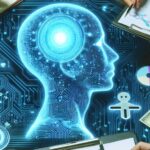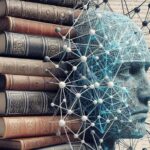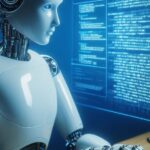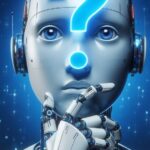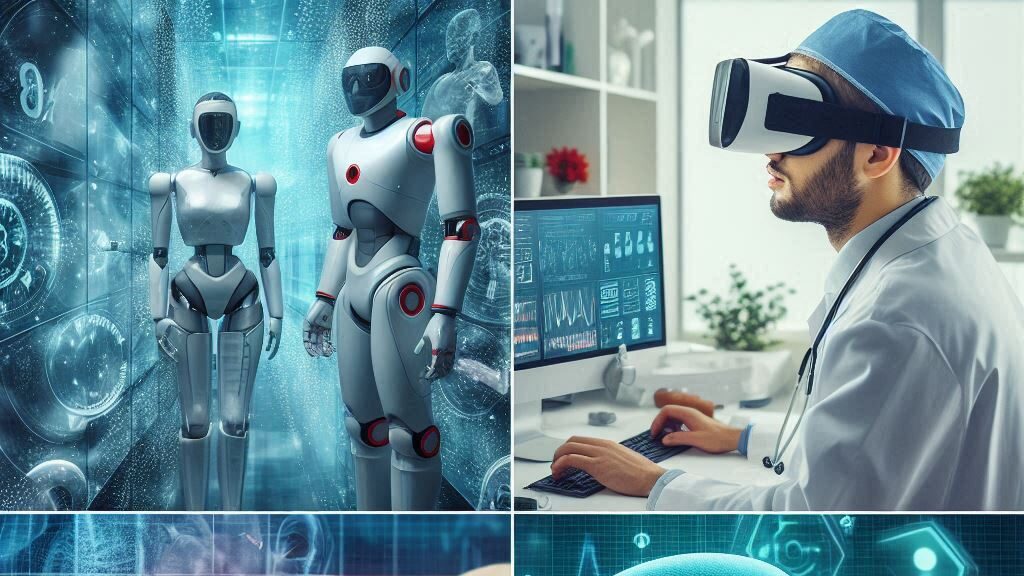Introduction
Artificial Intelligence (AI) is changing the face of different sectors, and healthcare is not an exception. The humanization of AI in the health sector is affecting the way diseases are diagnosed, drugs are being developed, and patient treatment is customized. The piece gives an overview of the employment of AI in healthcare explicating how this technology is improving patient care and medical research.
Table of Contents
AI in Disease Diagnosis
One of the most important applications of AI in healthcare is disease diagnosis. AI algorithms can undertake this type of analysis with remarkable precision by analyzing medical images (for example, X-rays, CT scans, and MRI). These algorithms are learning by going through many images and therefore detecting anomalies that could point out diseases like cancer, heart disease, or neurological disorders. This not only raises the accuracy of diagnosis but also makes it possible to detect diseases at an early stage, which leads to a significant improvement in patient outcomes.
AI in Drug Discovery
The drug discovery process is multi-stage, slow, and cost-intensive. AI accelerates this by forecasting the way compound reactions will be in the human body. Through the vast amount of data from clinical trials and scientific literature, AI can recognize potential drug candidates much faster than traditional methods. It substantially sharpens the drug discovery process, hence, life-saving medicines are distributed to the patients faster.
AI in Personalized Medicine
AI is another area where personalized medicine has achieved greatness to that level. The AI algorithms can analyze the genetic information, lifestyle factors, and medical history of a patient to predict their risk of contracting some diseases. Such data might help improve the treatment, making it more personalized. This will allow for better results as well as reduce the side effects of therapy. AI can predict how a patient will react to the given therapy, therefore, allowing doctors to select the most effective treatment plan to be followed.
AI in Healthcare Management
Similarly, AI is unleashing a revolution in healthcare management by improving the efficiency of hospital operations, and patient satisfaction. The AI algorithms can forecast the patient admission rates which consequently will assist the hospitals in better organization of the resources. Such digital technologies will also enable tracking of the patient’s vital signs including heartbeat, body temperature, and blood pressure in real-time, alerting health physicians whenever there is a need for critical care intervention. Hence emergency rooms play an important role in providing quick and appropriate care which helps in better patient management.
AI in Predictive Analytics
Predictive analytics is a very important application of AI in healthcare. AI algorithms are capable of processing volumes of complex data comprising patient records, clinical trial data, and research papers to predict disease outbreaks and identify patients based on their risk level. For instance, AI may be able to understand if a hospital patient will be admitted again in the future or has the risk of developing any chronic disease like cancer, heart disorders, or diabetes based on his or her medical history and lifestyle behaviors. Thus, the healthcare providers can come up with early interventions and prevention measures and hence, they can improve patient outcomes and the costs of healthcare will be reduced.
AI in Mental Health
AI is being MITPP in mental health care. Mental health aids of the type of AI-powered chatbots and virtual therapists are already at the forefront of providing mental health support to all types of individuals, be it people with depressive disorders or those with anxiety problems. The AI tools interpret the natural language and react to the user’s input, offering real-time, personalized help to the user. Their records may also be used to monitor the user’s mood and behavior in the long run, making it possible for healthcare professionals to get a better understanding of the consumer and adapt the treatment plans accordingly.
AI in Telemedicine
Digital medicine will also change the sphere of activity when AI improves. The introduction of AI technology has now made it possible for patients to meet with healthcare experts from the comfort of their homes. AI-equipped machines could judge patients’ complaints, locate remedies, and also predict the requirement of a patient to be hospitalized. In addition to enabling accessibility of healthcare, especially for people far from the healthcare facilities, it lessens the weight borne by the healthcare facilities.
AI in Robotic Surgery
Robot surgery is an area of AI in healthcare that occupies the front row of the most remarkable techniques. When operated by AI-powered robots, complex types of operations can be conducted with low failure risk, facilitating the healing process. These robots can process 3D scans to plan the best surgical approach, carry out precise incisions, and even sew the wounds. This is not only a boon for patients themselves but aids in quicker delivery of healthcare services.
AI in Prosthetics
AI will be a determinant in improving the field of artificial intelligence when it comes to prosthetics. The AI-powered prosthetic limbs can be designed to be so close to the natural limbs in functionality that they can even be thought to be the real thing. These prosthetics are AI-equipped which reads user movements and conforms to their specific gait. This lets a person have a more natural and useful user experience which means a person cannot get hindrance in his way of life.
AI in Rehabilitation
AI is a key aspect of the rehabilitation process of patients. With the help of AI-enriched devices and applications, taking part in physical therapy can be meditated, causing the program to be adjusted and remodeled inside the real-time frame depending on the patient’s performance. Through this individualized approach to rehabilitation, much greater results are achieved and could take a shorter time.
AI in Health Monitoring
Health monitoring is also one of the areas where AI is making great advancements. Wearable sensor systems with AI algorithms will mark out your health parameters like heart rate, blood pressure, and oxygen levels. These data will be helpful to examine the person’s fitness level and detect any health problem before it gets out of hand. The same devices are also capable of alerting users and providers in the healthcare sector in real time when a fluctuation, anomaly, or abnormal condition is detected to enable early medical intervention.
AI in Medical Training
AI is also changing the face of medical training and education. Medical students are being allowed to take up virtual reality (VR) and augmented reality (AR) technologies that mimic the actual practice atmosphere using AI. Through these technologies, a variety of scenarios from the simpler ones like routine examinations to complex surgeries can be simulated which enables students to apply their skills and hone them in a regulated and controlled environment.
Conclusion
Applications of artificial intelligence in healthcare may be numerous and even nonhomogenous being varied from diagnosing diseases to searching for medicines, personalized medicine, and managing the healthcare system. Through the application of AI, we can enhance the quality of care for patients, speed up medical research, and revitalize the healthcare industry. The influence of AI will become more and more meaningful as it continues to improve and therefore the healthcare process will become more advanced, precise, and personalized instead of trying to manage conditions manually and reactively.








